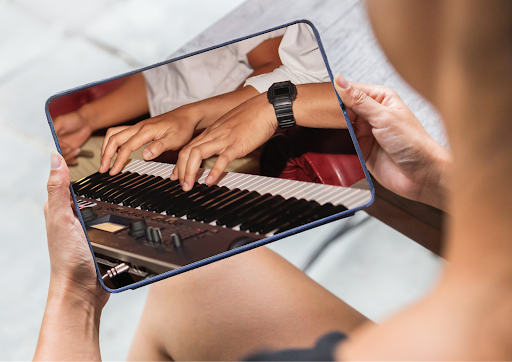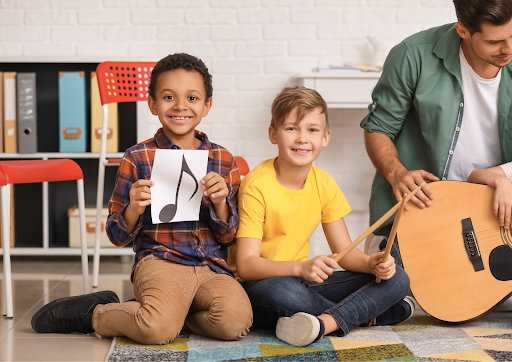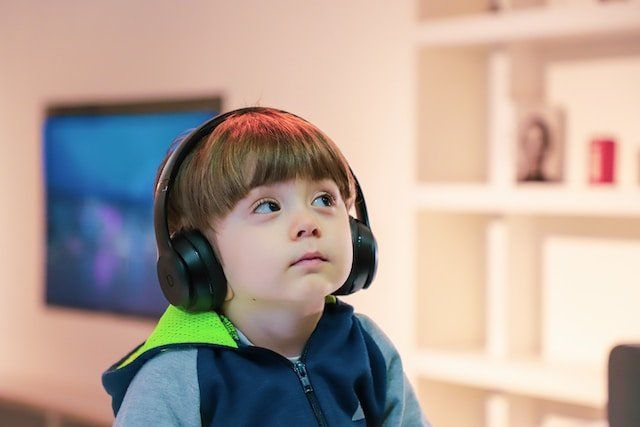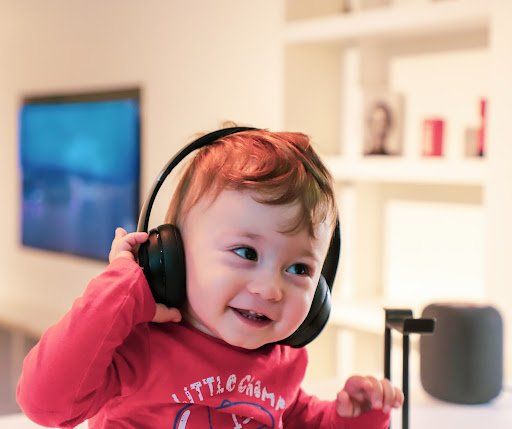Teaching Virtual Music Lessons: What’s Needed to Make a Connection?
The global shift to online teaching has presented both opportunities and challenges. Let’s discuss some of the hurdles music instructors face and explore how the greats rise above them, ensuring that every child’s musical journey remains an incredibly rewarding adventure!
Teaching Virtual Music Lessons – Overcoming Hurdles
Historically, one of the biggest challenges with virtual music lessons was battling technical difficulties. From internet connectivity woes to audio/video quality concerns, these hiccups can hinder the learning experience. But today, it’s not so much of a concern. Internet connectivity is faster and more robust, and video chatting platforms have never been better. So, bad experiences due to poor internet connectivity are solvable, as accessibility to broadband connections has never been greater.
Perhaps the biggest challenge for online instructors is maintaining children’s motivation and keeping their attention. Let’s face it: digital distractions lurk at every corner, from web shows to video games; here’s where music teachers become magical motivators, infusing excitement by incorporating popular songs, creating fun activities, and inviting parents to join the musical journey.
The instructors at Jammin With You know and feel when there’s a connection with a motivated child. We tailor our programs and content to be fun and engaging, not a chore. We also work to match the right instructor to the child’s age and personality so that they can get the most out of their experiences with us. If something needs to be changed/adapted for the good of the instructor and student, we make sure it happens.
Online Music Learning’s Advantages
Now that we’ve discussed some of the hurdles of online learning, we cannot ignore the benefits that most parents can appreciate.
-
Online music lessons offer flexibility and convenience. Parents do not need to worry about transportation for their kids to attend lessons in person, and they can also have more flexibility regarding the time of day the lessons can occur.
-
Unlike the old days of being limited to whoever the local music teacher was in the area, now parents can choose from a variety of teachers with different strengths, skill sets, and focuses.
-
Kids today can have a multi-media approach to music education. Everything imaginable that is music-centric is at their fingertips. They can watch videos, use a whiteboard, play interactive games, find visual aids, and search for almost any song with a few clicks.
-
It’s a virtual gateway to learning video production, which has become a cornerstone of the arts today. Having these skills opens endless opportunities, whether music-focused or not.
Parents and Kids Excelling With the Digital Age
Parents play a crucial role in orchestrating the success of their children’s online music lessons. To help their children succeed with virtual lessons, they can support them by:
-
Providing a quiet and dedicated space for practice and quality musical equipment. All kids need the right space and tools to practice; this is foundational for setting them up for success and is step #1 in any child’s musical journey.
-
Fostering consistency and encouraging regular practice. Getting the practice time in each day will lead to remarkable progress and boost your child’s confidence in their musical abilities. Without practice, the “spark” of musical inspiration is nearly impossible to find.
-
Showing interest! It’s so important to monitor your child’s progress, ask questions, and attend all recitals. If your child feels what they are achieving is unappreciated, they’ll likely lose interest themselves, and this is a path that no instructor at Jammin With You wants to see.
While teaching music online to children may present challenges, there’s plenty of opportunity. Online music lessons can be beautiful crescendos of discovery and progress with the right tools, resources, and teaching methods.
Reach out today to learn more about our online classes!









